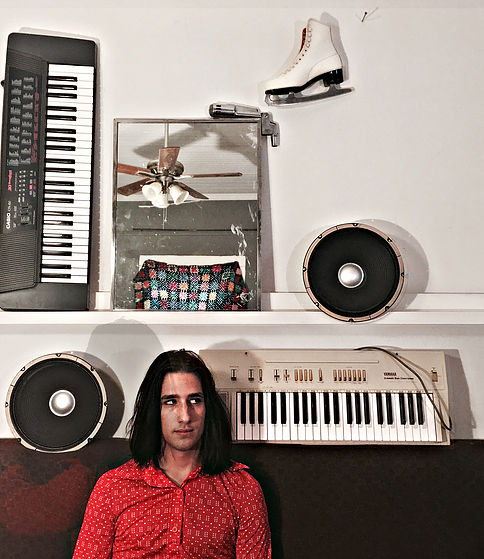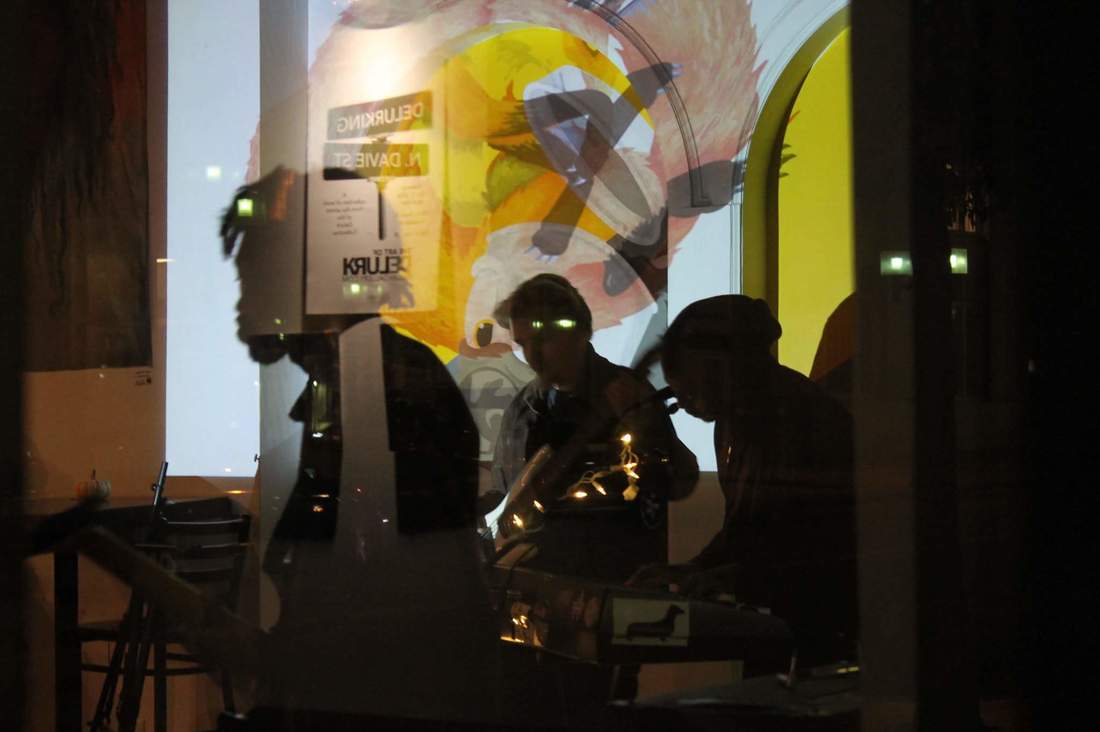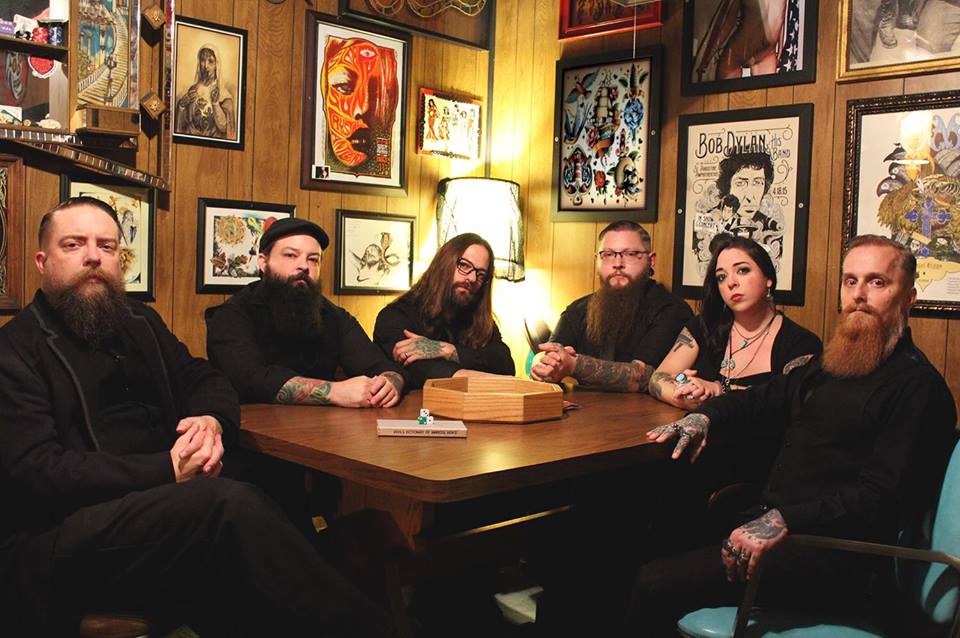|
Cloud Repair creates dreamscapes infused with suspended chords and Wells’ introspective musings. Their release Space Suits shows a keen ear that melts the high-art creative palate with Casio-drum machines; like Danse Manatee produced by Sonic Youth. Braided with infectious melodies and hypnotic rhythms, these songs’ heart come from Wells’ hushed vocals. Together they suggest the urgency to life your best life now. Wells joined me for a brief chat about writing, vocals, and how to cull inspiration.
Follow Cloud Repair on Facebook here. SC: I love how you process your vocal so that it haunts soundscape. Can you tell me a little about this choice? RW: The vocals on that song were processed to fit that crying out, in anguish kind of emotion the song has. The multiple vocal tracks that kinda swarm around the mix hope to evoke the confusing, desperate feeling in the song. SC: Your songs are so adventurous musically. Do you have any advice for artists trying to create a similar vibe on their tracks? RW: Be creative with your instruments. Guitars don't have to sound like just guitars or vocals just like vocals. Its fun to think of an instrument as a vehicle for sound, whatever that maybe. Also recording music at home lets you have more time to do weird stuff, like how some people record vocals in a shower for effect or something like that. SC: What was your writing process like for "Hear Me, Girl" RW: "Hear Me, Girl" was a wacky song to write. It started with the drum beat actually. I wanted a song that was more upbeat. After that, it kinda drifted towards what the main parts would be and the lyrics. These work symbiotically for me because the words and what the music makes you feel like are one in the same for each song I think. SC: What is your writing routine like? Do you write daily or wait for inspiration? RW: Usually it happens when I don't try and am not expecting it. That's hard though cause I would try all day if I could. In a way, it makes it more exciting cause it is fun to just have this idea appear suddenly, regardless of your expectations in that moment. SC: How does your community of songwriters influence you as a songwriter? RW: The musicians I do know and have connected with are important. It's a weird thing to sit around and think spending hours, months just tweaking your sound and songs is worth anything. So maybe the circle of inspiration among artists is life-giving.
0 Comments
Foxture’s music blends whispered poetry with complex arrangements that sound like Sufjan Stevens hypnotized by Animal Collective. “Circles” is a dreamy meditation on perfection, existence, and self-discovery. Lead singer Marlon Blackmon weaves the confessional amidst chiming guitars, lively piano, “Casting diamonds into the sea / convincing myself they mean nothing to me”. Marlon joined me for a brief chat about change, hindsight, and hometown inspiration.
You can buy a copy of their EP Circles here. SC: I love the second verse—“I'm thinking of all of the times / I second-guessed my humble mind / but I'm overthinking”—because of how the third line undercuts the narrator’s first lines. Can you tell me a little about writing these lines? MB: So while I was writing circles, I was coming out of an anxious state of mind where I realized that I didn't have to second guess myself. Those lyrics opening up the second verse serve as a growing point for me and my state of mind from the opening lines where I’m willing to change myself to please someone else's needs or desires. In the second verse, I’m realizing that maybe I wasn't as wrong as I felt just because my way of doing things or expressing myself didn't fit someone else's standards. SC: What was your songwriting process like for “Circles”? MB: As far as the writing process for “Circles” goes, I was wringing from a point of hindsight of past relationships with people where I was at a healthier, more independent state of mind, free of the bias and emotional wear and tear that emotions tend to bring. The instrumentation up until the bridge came first and the bridge represents yet another change in mindset—of how when you think back to the darker times, you become a bit down at your past actions, which, the entire bridge was written mostly off of feel. SC: What is your normal songwriting process like? Do you write on a schedule? Do you wait for inspiration? Do you write as a group? MB: Our normal writing technique is that I write a song in it's most minimalistic form to get the bare bones of it, and then I bring it into practice and then everyone else writes their own respective parts. After it's been a while, I’ll introduce a new song, we will perfect it and then perform it. Since we are releasing a new body of work soon, and currently writing for a full-length album after the upcoming release of a new EP, we are trying to release material in a more strategic manner. SC: How does your community of songwriters influence you? MB: I look up to most songwriters from our hometown of Winston-Salem! I feel that you can learn so much from watching other creators move around their own careers and everyone in our local scene of musicians are insanely supportive and will help where they can, whether that’s lending contacts or collaboratively working on writing or creating in general. Watson Village is a three-piece party with focused songs and driving arrangements. However their tune “You’re Not Alone” shies away from their controlled bombast. “You’re Not Alone” is a sparkling rumination on life, friendship, and the importance of cherishing each waking moment. Tyler Watson coos “I know sometimes it feels like the world is crashing down / when you’ve lost more than you’ve found / you’re not alone” as he’s joined by a modulated slide guitar solo straight out of All Things Must Pass. The song concludes with the ethereal chirping of songbirds in an empty courtyard.
You can buy a copy of “You’re Not Alone” here. SC: What I love about this song is that it’s about telling someone they’re not alone while the sparse arrangement seems to suggest loneliness. How do you view these tensions working in the song? TW: I feel like it's most important to remember that you’re not alone when it feels like everything is going wrong. SC: Can you tell me a little bit about these lyrics: “Our time here is short. / No one knows just when for sure / but, honestly, if anything, it makes me love you more”? TW: Yes, it's about the uncertainty of life and how it brings loved one closer together. No one is promised tomorrow, and I think it's important to remember that and show all the love you've got. SC: Tell me a little bit about the process behind writing “You’re Not Alone” TW: Well, I wrote the song one evening while feeling sad about something or another. I had just picked out the melody that day, and the notes seemed to be saying something already so the words came easily. SC: How often do you write? Do you keep a songwriting schedule? Or do you wait for inspiration? TW: I'm always working on a tune or several at the same time. I just do it because I enjoy it. I've been doing it for so long it's part of me. Life is a most inspirational journey and that's my release I suppose. SC: How does your community of songwriters influence your work? TW: The people I keep around me are 100% themselves all the time, and that is so important. They influence me to be a better person. I just want to enjoy life and make good music, and I know that's what we're going to do –as long as we can. Blood on the Harp’s two-step ballad “They’ll Never Find Me” is a anguished narrative about death and subsequent questions of spirituality. Melodic rivulets of fiddle and acoustic guitar accompany Miguel Olascuaga’s reedy tenor. The song’s bridge concludes with tearful resignation “Well, if heaven is going to cause me all my memories and tears / and make me a stranger to all my family and peers / then oh, lord, please leave me here.” Miguel joined me for a brief chat about memory, character building, and finding purpose.v You can buy a copy of the Ghost(s) Vol. 1 EP here. SC: Your songs always have these beautifully flawed characters. Can you tell me about how you created your characters in this song? MO: First off, I wanna thank you for the kind words and for this interview. The character in this song is myself, the clergy, anybody fighting with the internal fear of judgment, and the intent from the hosts who instilled those fears. SC: Can you tell me a little bit about these lyrics: “well if heaven’s going to cost me all my memories and tears / and make me a stranger to my family and peers / Oh, lord. Please leave me here”?
passes. Those words resonated with me all through my years as a teenager and into adulthood, "What the hell is the purpose of living and loving if one day you're going to take it all away and leave us with an ideal that suits only one ego".
SC: What was your songwriting process like for "They'll Never Find Me"? MO: When I was very young, church, along with Sunday school was the perfect daycare for children that came from troubled homes, or at least that was my experience. There was an instance in one Sunday school session that will always stick with me, the teacher was explaining what Hell was like to a room full of children and it went something like this: She walked over to the light switch, and as she turned it off darkness swallowed every face in the room. "Hell is a place for sinners, a place where nobody can save you from the intense fire that will consume your body, it's a million times hotter than our sun and screaming from those around you WHO ALSO are being tortured and burned will be the only sounds that you hear." You will enter through the Lake Of Fire, that's where Jesus throws the sinners and those who didn't believe in him when he comes back. "Nobody can rescue you, it's forever and there's no coming back, no light, no love, nothing but torture and fire. "If you don't accept Jesus and do what The Bible tells you, you will go to Hell for eternity, no one is exempt, not even you [ . . . ] Now let us sit here for a few minutes so that you can understand that this is only a small fragment of what Hell will be like." After her yelling this at us in a dark room for over 20 minutes, let me tell you, when she turned that light on, there wasn't a clean pair of underoos in the building. There is another situation that is much too painful to discuss, and for the sake of protecting what little faith any of you may have in the church, as I realize not all are the same, I'll leave that part out. Those situations are what lead to the writing of "They'll Never Find Me". SC: What is your songwriting process like? Do you keep a schedule? Or do you wait for inspiration? MO: I think—as you yourself can agree—being a talented songwriter, [songs] come when they do and not a minute sooner than that. My inspiration comes from my past endeavors and current life struggles, a melody will come to me while I'm working, while I am dreaming, and sometimes when I hear others around me talking. I have some of the most inspiring folks around me and that helps with the writing process for sure. SC: How does your community of songwriting influence your writing? MO: Have you heard Atlanta? It's one of the most inspiring cities whether it's food, art or music. With so many talented souls, I am very fortunate to share this space and learn so much from it. |
The Sound Connector is an online magazine for songwriters. We feature songwriting challenges, monthly interviews, and the opportunity to discover new songwriters. We are interested in all things related to the craft of songwriting. Do you want to be featured on The Sound Connector? Send us your songs!
Categories |




 RSS Feed
RSS Feed